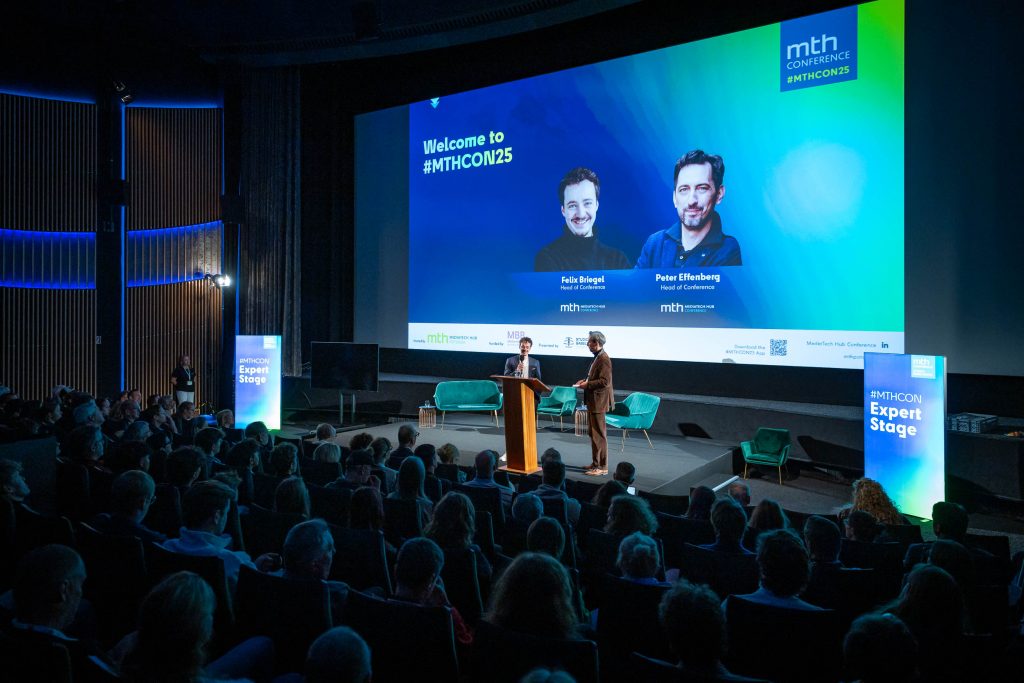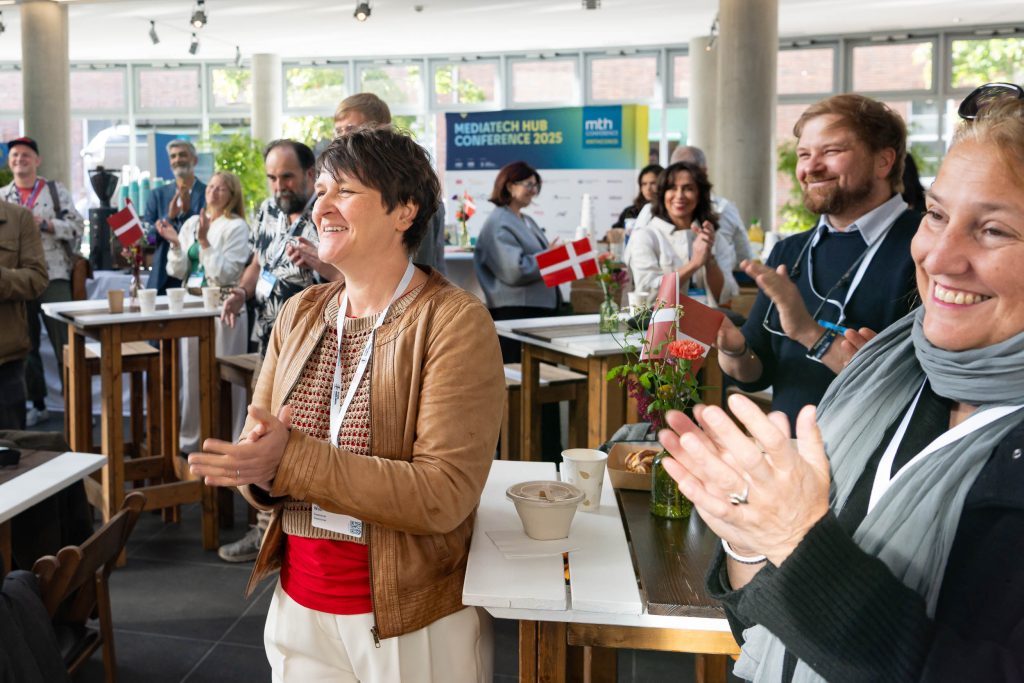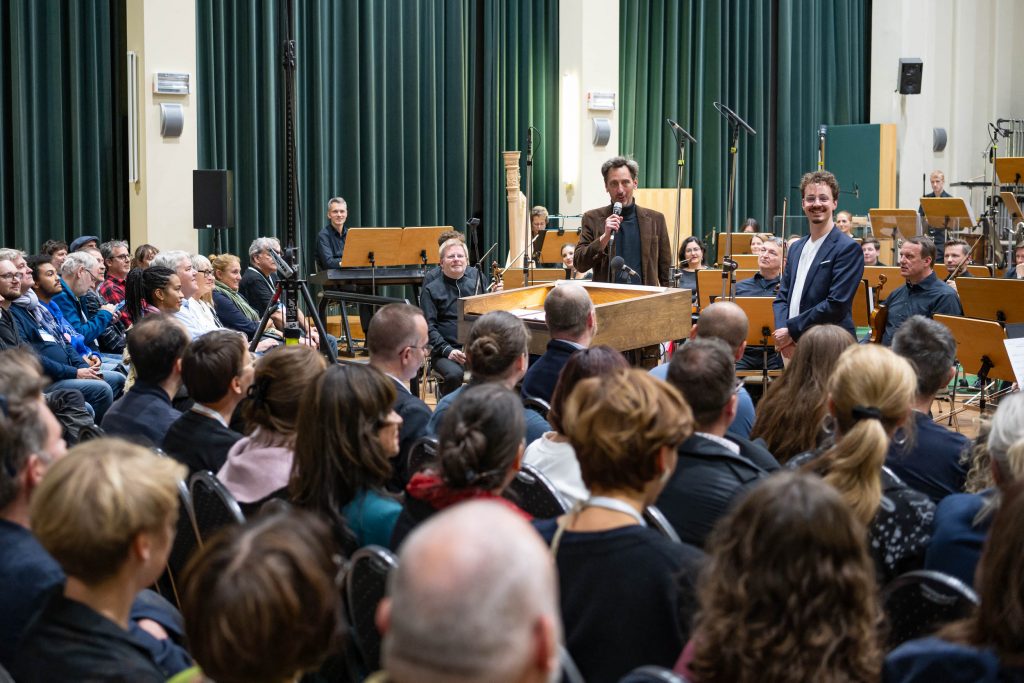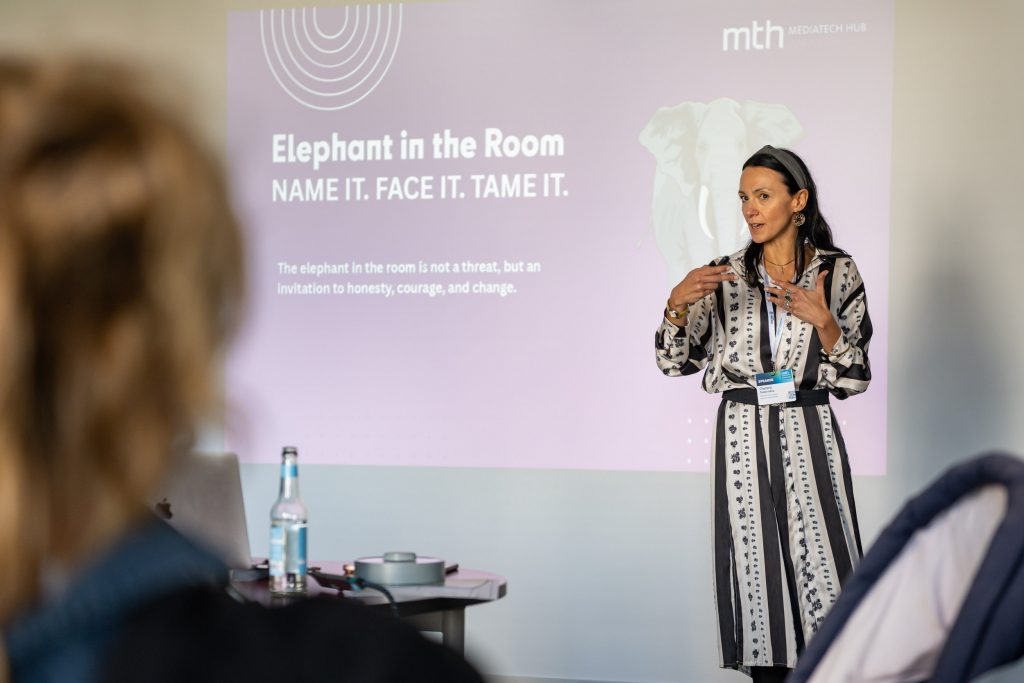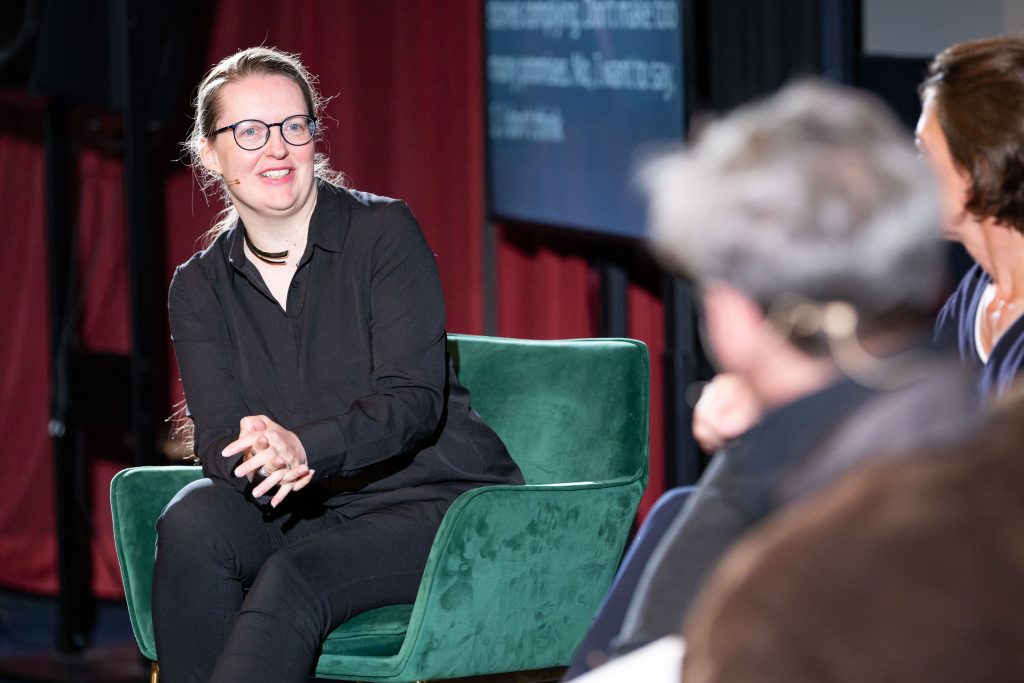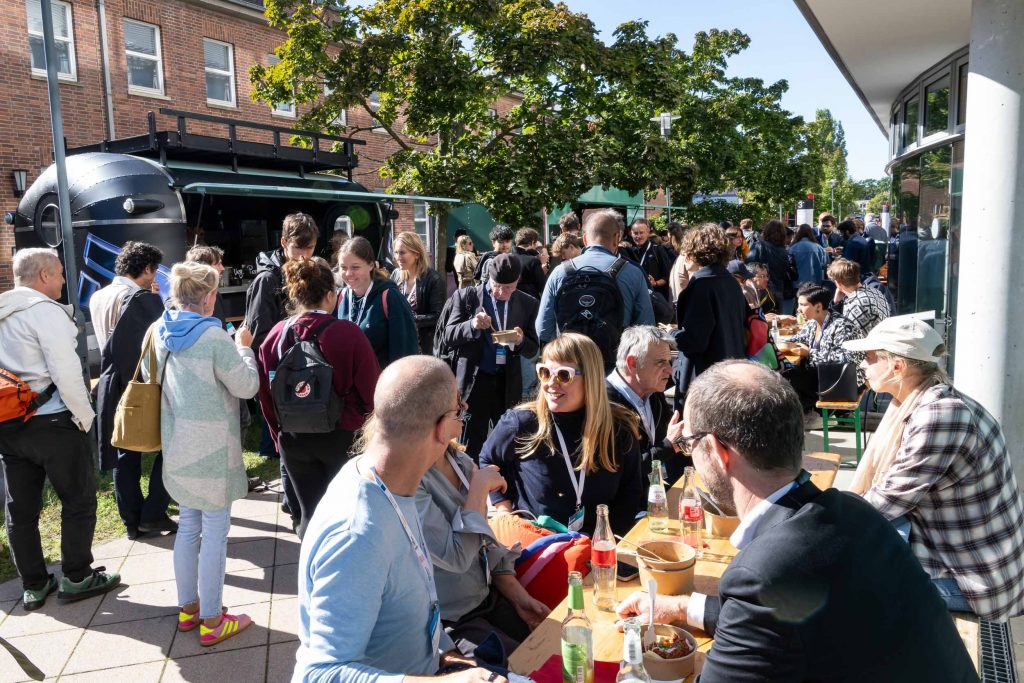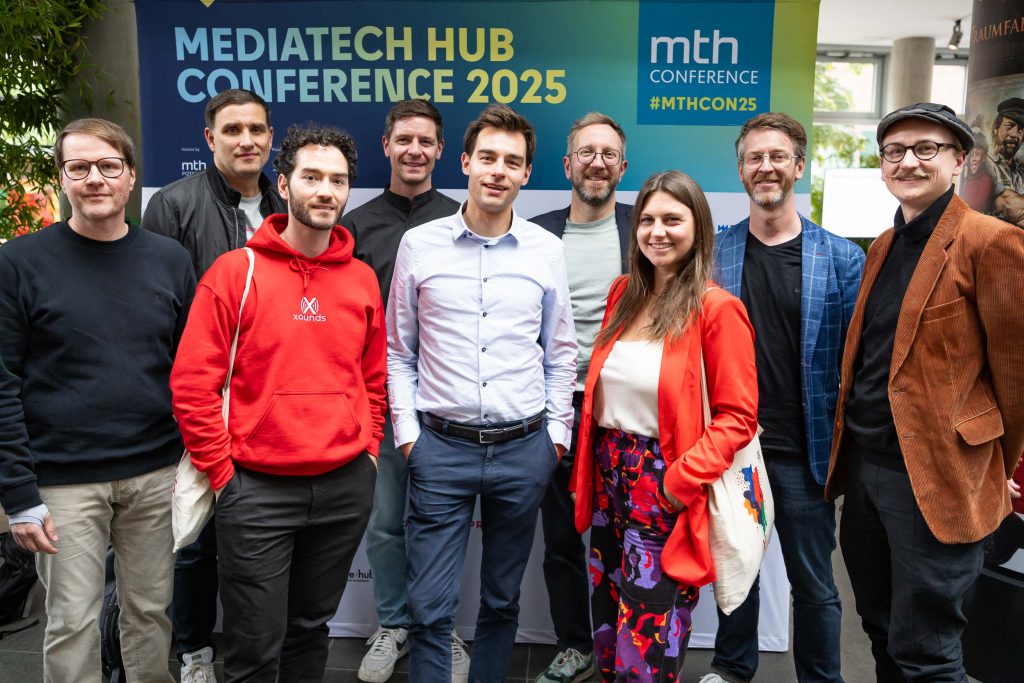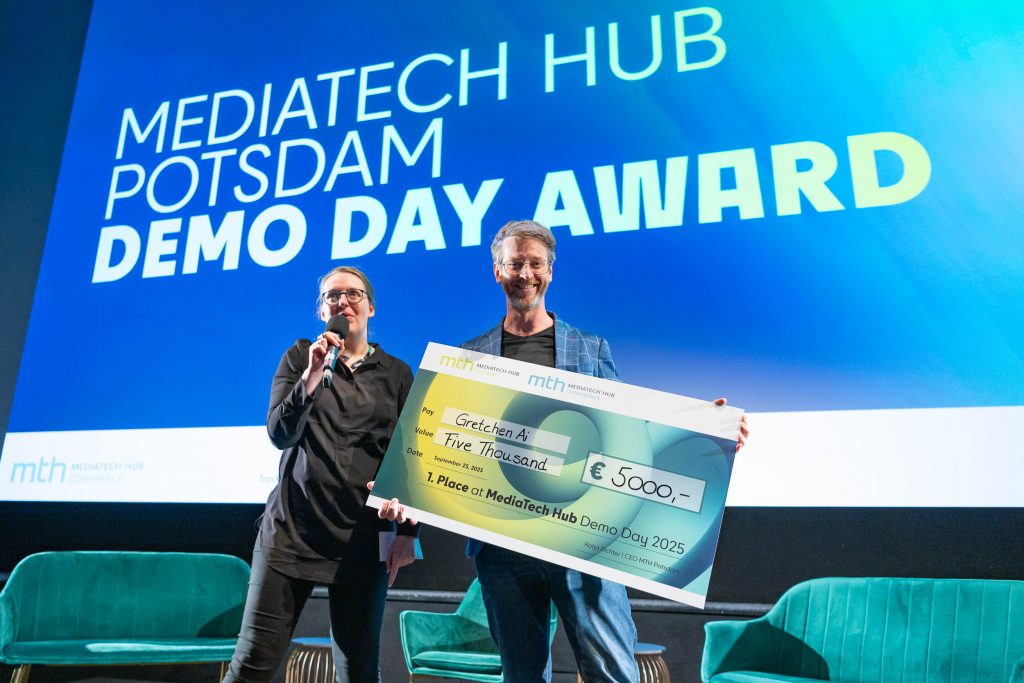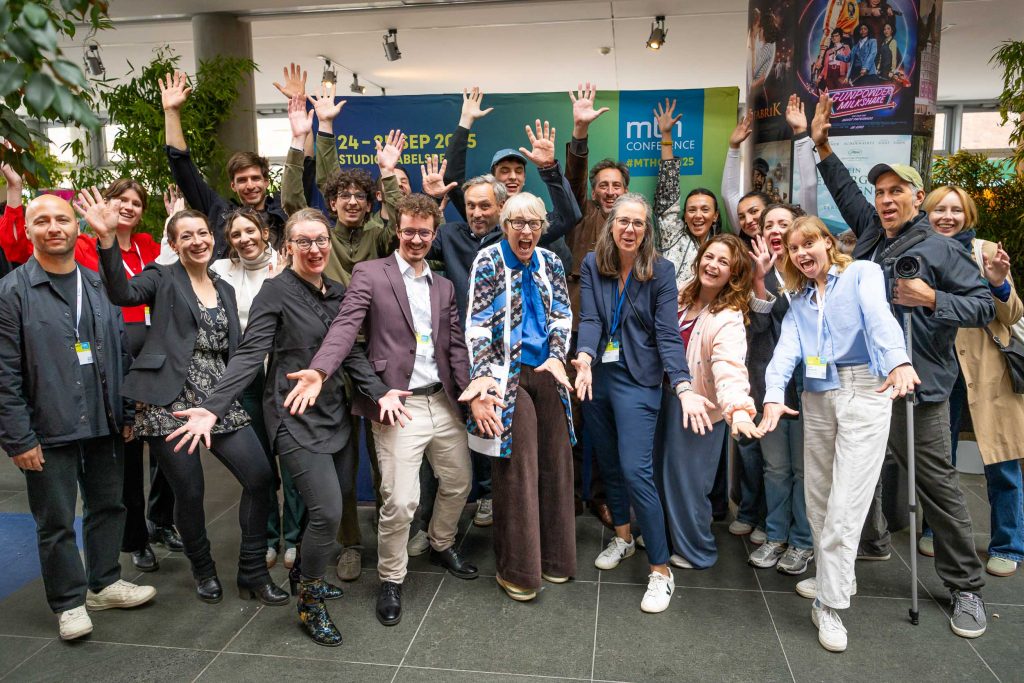“Is AI still the pen in our hand—or have we long since created the hand that guides the pen?” Director, screenwriter, and actress Maria Schrader opened the MediaTech Hub Conference 2025 with this question. Her keynote address posed the crucial question for the industry: How are technologies changing our art—and how do we remain at the center of this development as human beings?
For two days, leading figures from the worlds of film, TV, streaming, and tech gathered at Studio Babelsberg to discuss the future of media. More than 60 national and international speakers shed light on current challenges, from generative AI and new distribution channels to creator communities and the journalism of tomorrow.
Global perspectives
The “Global Industry Update” and “Global Tech Update” sessions highlighted the significant pressure facing the industry and the opportunities this presents. Jörg Bachmaier from Studio Babelsberg and Mark Harrison from the DPP made it clear that rising costs, consolidation, and new bundling are fundamentally changing the streaming landscape. Alan Wolk from TVREV and cinematographer Kathryn Brillhart emphasized that the era of monoculture is over: audiences no longer gather around a single campfire, but are fragmented. However, this is precisely where they see the current potential for local voices, niche content, and new creative approaches.
Creator-Communities und Content-Strategien
How content will reach target audiences in the future was a recurring theme in many panels. Creator Robin Blase made it clear that packaging is always part of production and not just distribution. Content must be adapted to platforms, formats, and hooks during the creation process. In another session, Nat Poulter from BBC Studios contradicted the “brain rot” theory and stated that young target groups today process content more selectively and quickly, but are by no means less discerning. His appeal was also that content should be published with a clear intention – with a genuine understanding of how it works on the respective platforms.
Distribution in transition
How content can be distributed via linear television, streaming platforms, YouTube, or TikTok without losing brand integrity was the topic of the session “Navigating Multiplatform Distribution.” Andre Prahl from RTL spoke of a balancing act. Experimentation on new platforms is necessary, but overstretching weakens the brand. There was agreement that engagement is the decisive factor, while the monetization of short-form content remains an unresolved challenge.
AI as a driver of change
“We’re only seeing the tip of the iceberg.” With these words, Rishi Coupland from the British Film Institute presented the first national study on GenAI in the British screen sector. This was supplemented by insights from major tech companies: Google introduced the text-to-video model Veo 3, BytePlus presented tools for social-first creators, AWS spoke about scalable infrastructures, and FilmLight discussed the use of GenAI in high-end production. One thing became clear: AI is changing workflows, storytelling, and production practices, both visibly and invisibly.
Building trust
The track “Trust & Technology” addressed the question of how trust can be ensured in an AI-driven media world. Marie Kilg from Deutsche Welle emphasized that AI is never neutral, but always reflects human decisions: from training data to incentive systems. Trust, therefore, does not arise solely through technology, but through transparency, accountability, and new interfaces accompanied by smart regulation.
Keeping journalism visible
The Babelsberg Media Innovation Center (MIZ) focused on the future of journalism. Alexandra Borchardt warned that there is a danger that young people will no longer even know that journalism exists. It became clear that in order for journalism to remain relevant, it must open up new spaces, formats, and platforms, from local reporting to innovative, interactive offerings.
Denmark as host country
As the guest country, Denmark presented its recipes for success for its innovative and vibrant film industry: flat hierarchies, creative power through limitations, and a clear political framework that will be supplemented with new tax incentives from 2026. Anna Porse Nielsen summed up the role of the industry: “Film is not just culture, it is part of the backbone of a healthy society.”
Startups in the spotlight
At the first MTH Startup Demo Day, eight startups from the MTH Accelerator presented their innovations – from AI-powered solutions to new entertainment formats. Gretchen AI took home the prize with a framework for detecting deepfakes and disinformation that sets new standards for trust in the media.
Conclusion: Focus on people
The MediaTech Hub Conference 2025 demonstrated that whether it’s AI, content creation, or journalism, technology is the driving force, but people remain the benchmark. Creativity, trust, and community are the constants that shape media change. In addition to panels and discussions, the supporting program offered concerts, networking events, and the Speakers Breakfast, providing many opportunities for exchange and inspiration. One thing is clear: the future of media is created where technology and creativity intersect – and where people consciously shape it.
Here are some impressions from the MediaTech Hub Conference 2025. Photo credits: Lars Hübner
